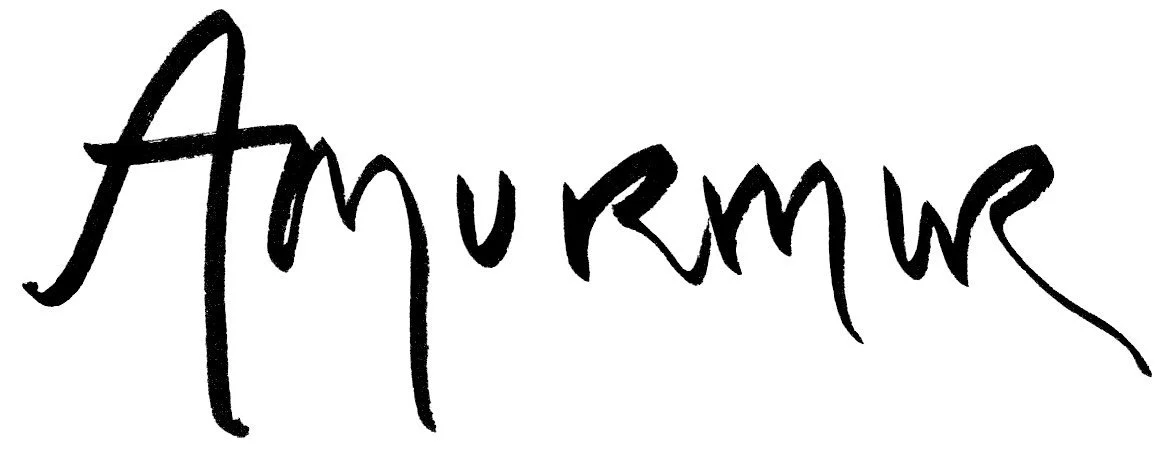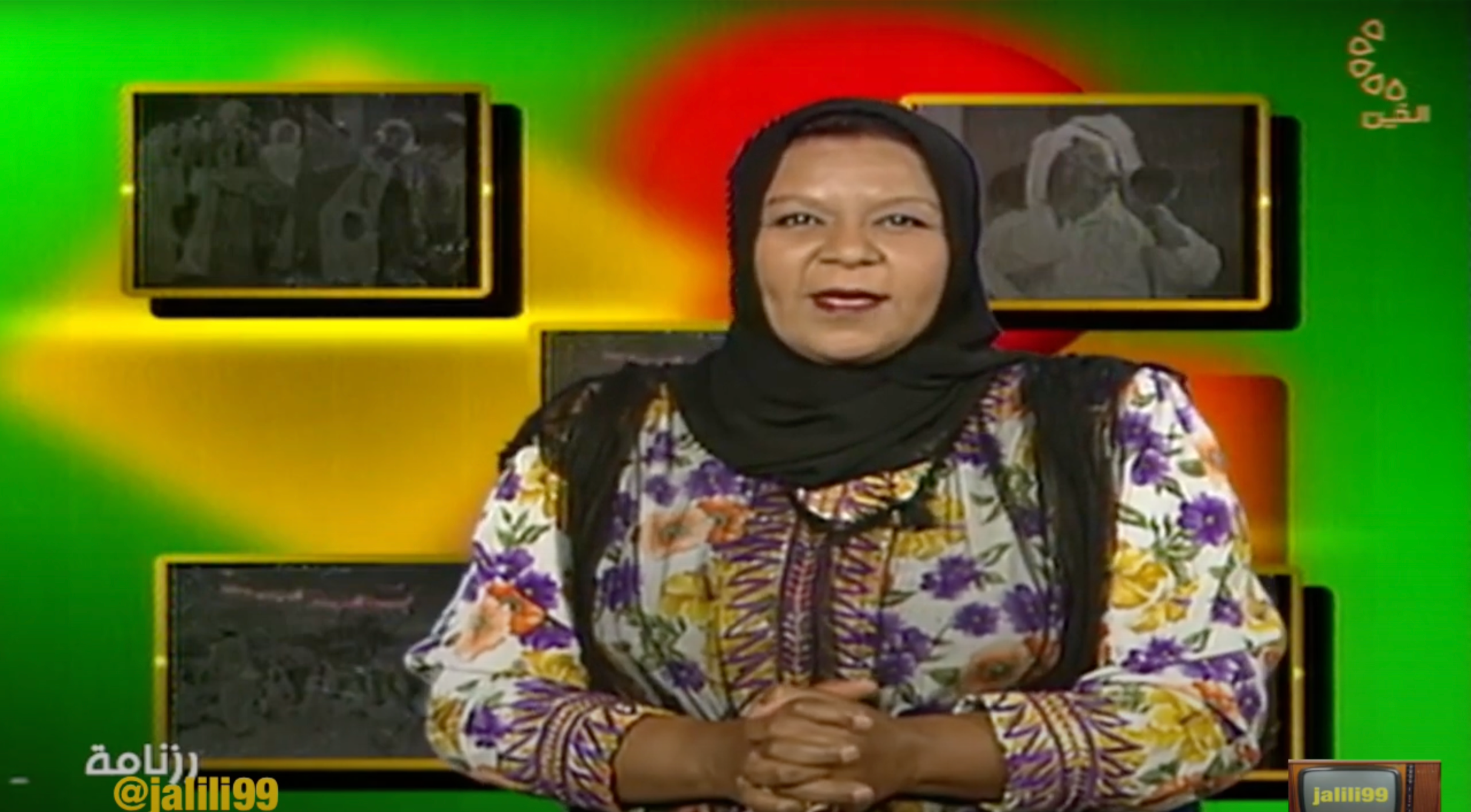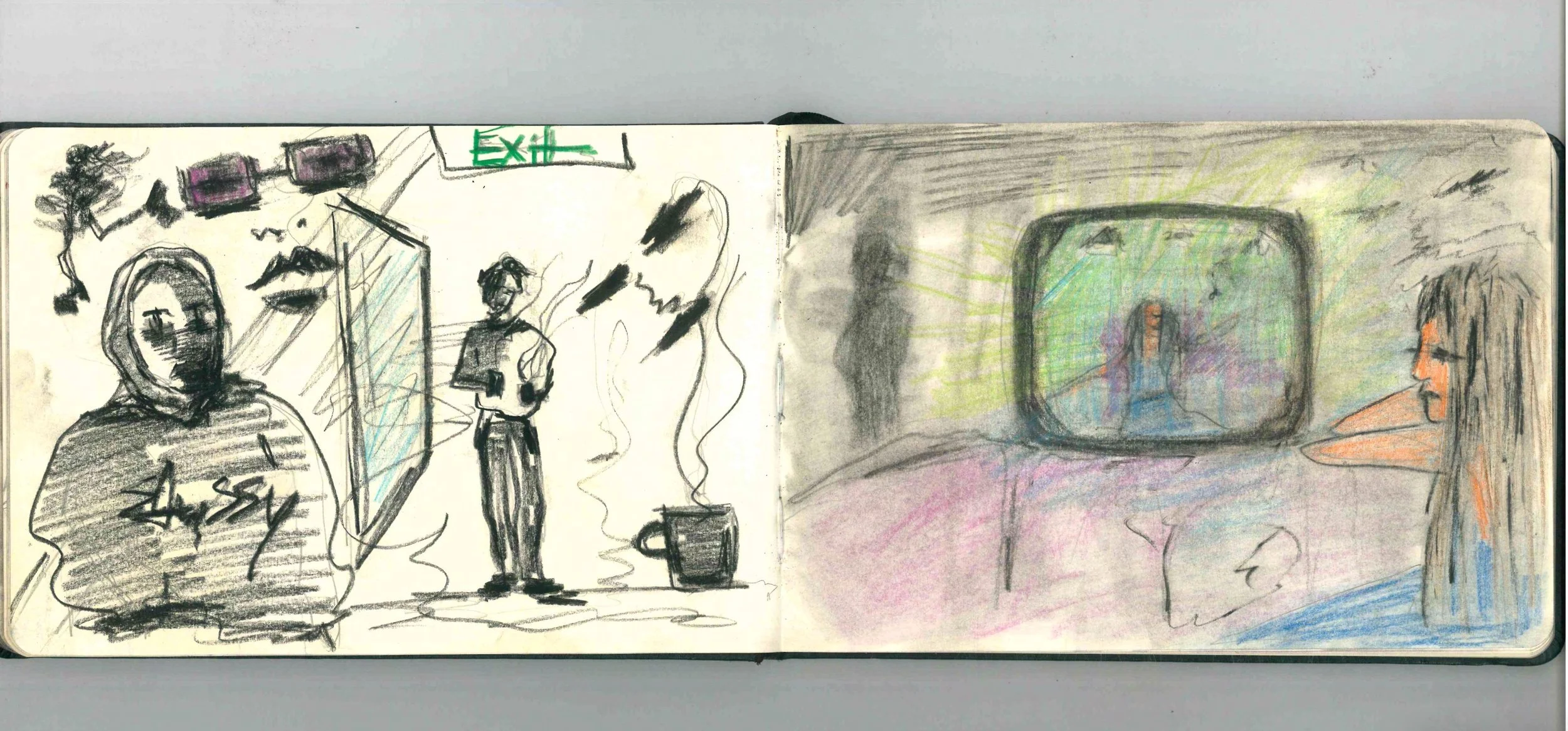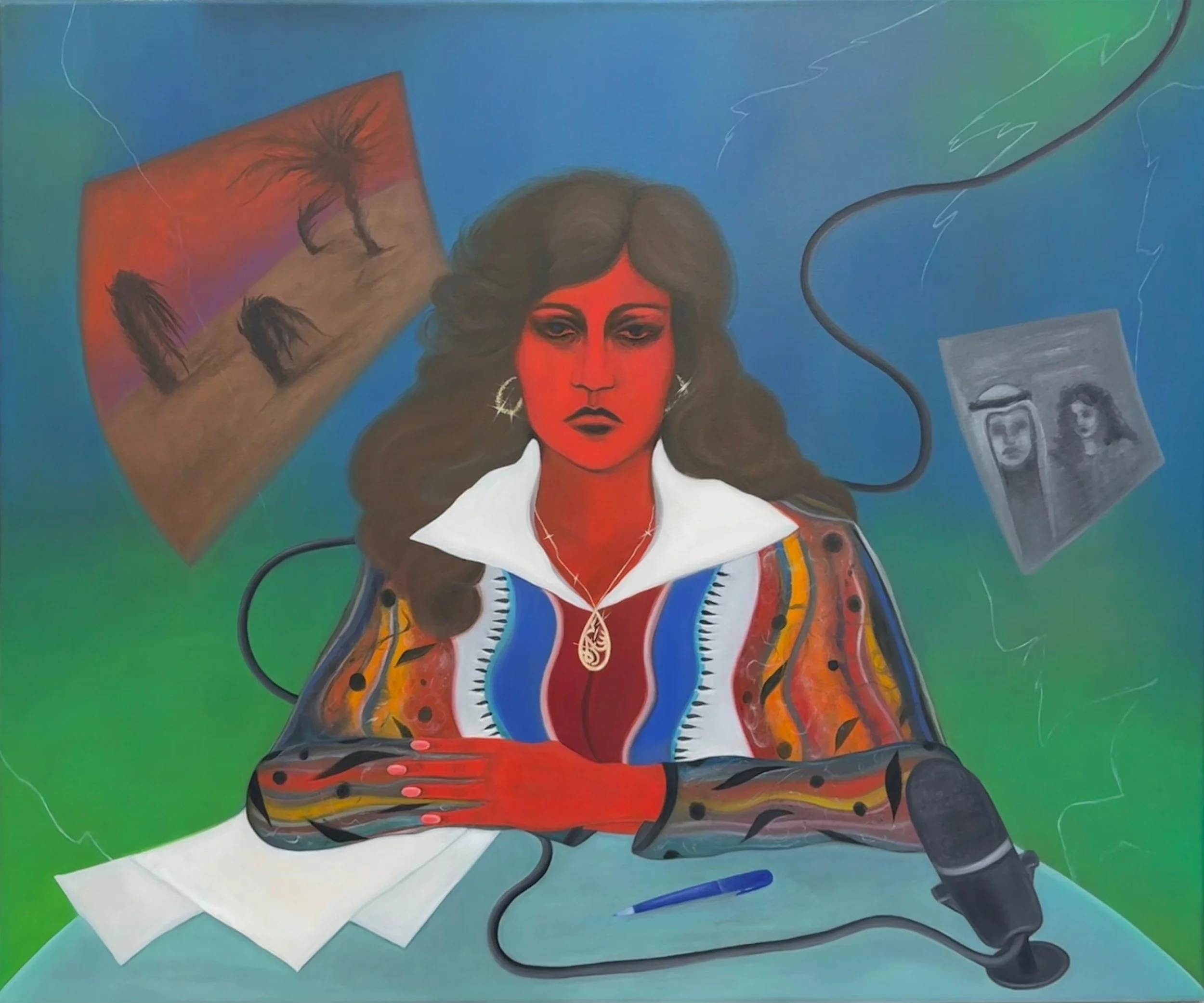Dalal Al Obaidi reimagines a Kuwaiti archival television program to walk us through memories of her own
Reznamah
‘To describe it, I think I would have to tell you about its beginning.” Al Obaidi introduces our phone call with alluring words: for anything to ever be really understood, it should probably always start with a prelude.
via: "🇰🇼 برنامج رزنامة 25 تقديم سهام مبارك وذكريات الماضي والزمن الجمييل (Jalili99 /Youtube, here)
Dalal Al Obaidi - Reznamah. (2:20 , 2023) previously exhibited: Sultan Gallery
“In my country our lives and families are all very intertwined. We visit eachothers’ family homes and keep in touch with everyone. We are always sharing. My mother invited me to an old neighbors’ house for a gathering. There was catching up, tea and the were biscuits. But then I saw the TV.” Dalal feverishly describes the woman on the screen, her gestures gaining in viguour as she hurries along her narration, careful not to miss a single important detail of this discovery. She later confesses: “She looked so out of place, I wanted to be her.” It was the colors that spoke to Dalal first, the palette was bright and bold but pastel and faded. “I had never seen anything like it. I went up to the TV and took pictures because I wanted to understand what it was I was looking at.”
via: "🇰🇼 برنامج رزنامة 25 تقديم سهام مبارك وذكريات الماضي والزمن الجمييل (Jalili99 / Youtube, here)
She was watching a retrospective unfolding of Kuwaiti history through a glimpse of برنامج رزنامة / Barnamaj Reznamah, a program that once ran on Kuwait Television before having its rerun on the Al Qurain channel. The woman Dalal was in outstanding awe of was the famous Kuwaiti presenter Siham Mubarak. “During the program, she basically goes through Kuwait TV archives and reminisces about significant cultural moments, important footage and bygone TV shows. She unearths old documentaries showing Kuwaiti treasures. Old pearl divers for example. It was a mix of everything, it was a timeline that would go back and forth between our history.” The artist describes the presenter’s presence, the focus always on her place as a curator of collective Kuwaiti memory with glimpses of past moments springing up behind her, flashes of black and white remembrance. Mimicking Kuwait’s ever present connectedness, the program recounts all its digital stories. What caught the artist’s attention most was that Siham Mubarak herself embodied the archive of Kuwait TV. “Reznamah translates to calendar which can be in the form of an agenda or hung on the wall. So it has many functions in this context especially as a program. I believe in this case ‘Reznamah’ serves as a reminder: the presenter goes over a calendar of significant events and moments in culture.” Devouring the program’s poetics and aesthetics, she decided to paint what she’d seen. “But it just wasn’t enough!"
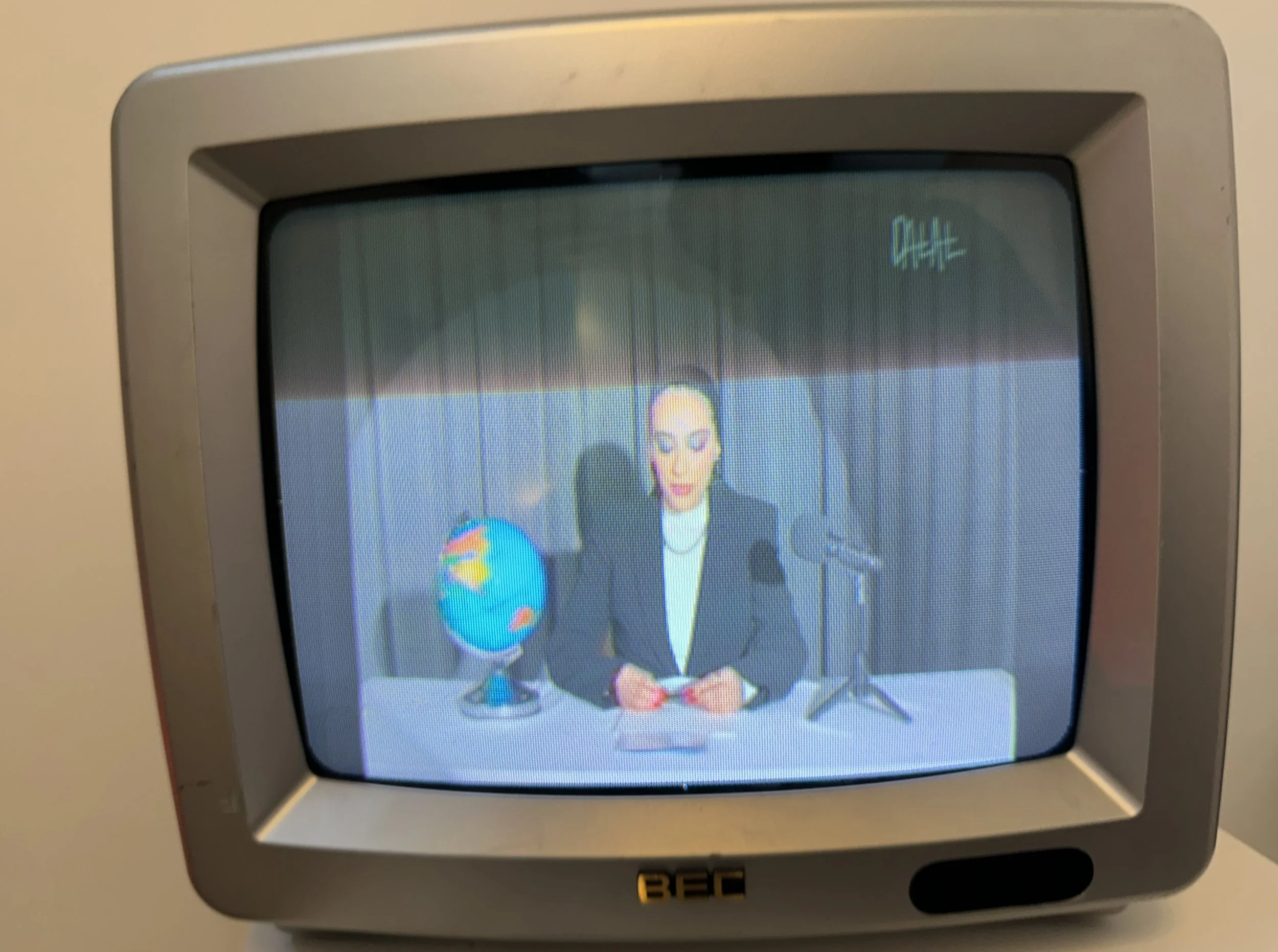
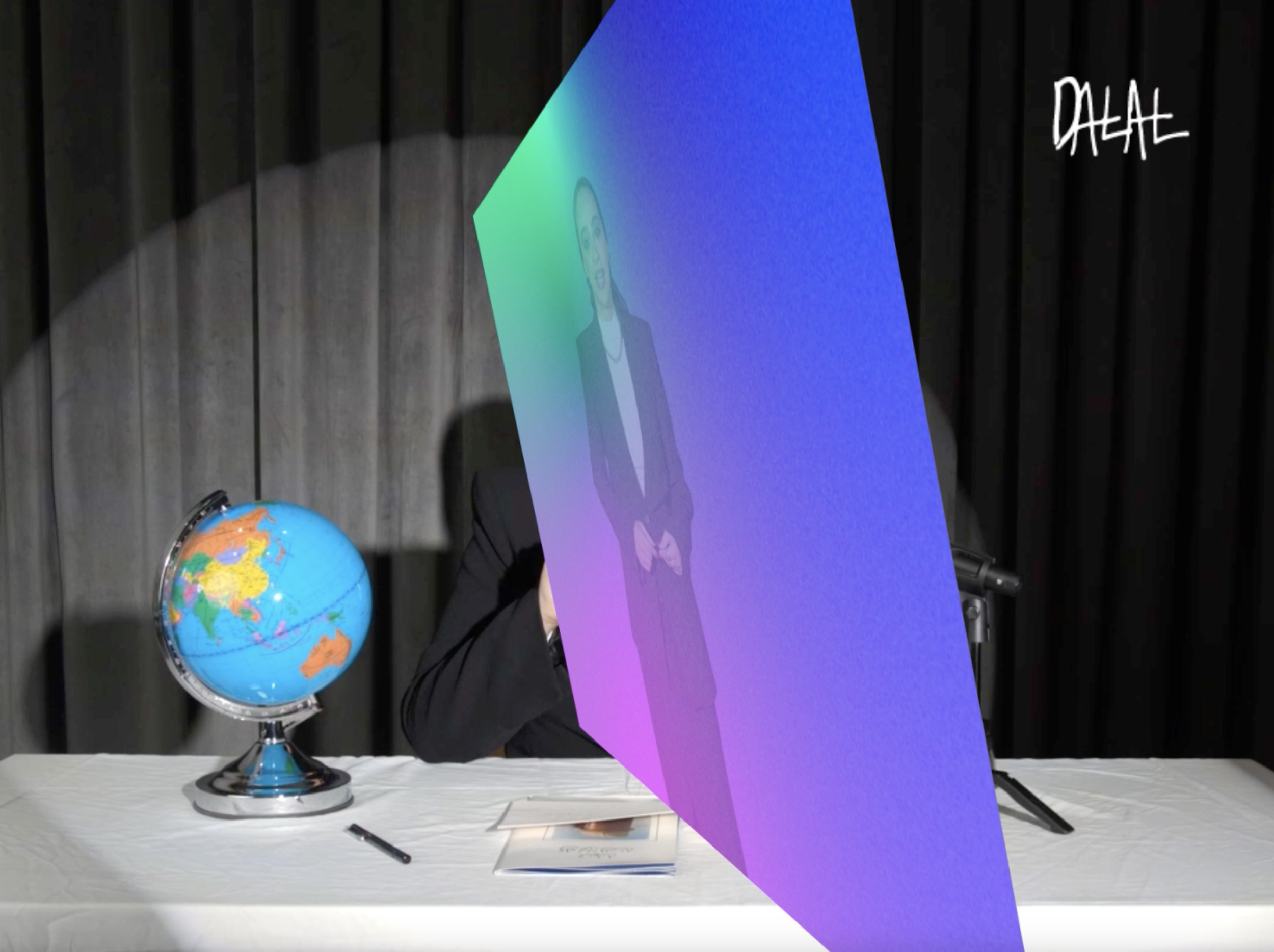

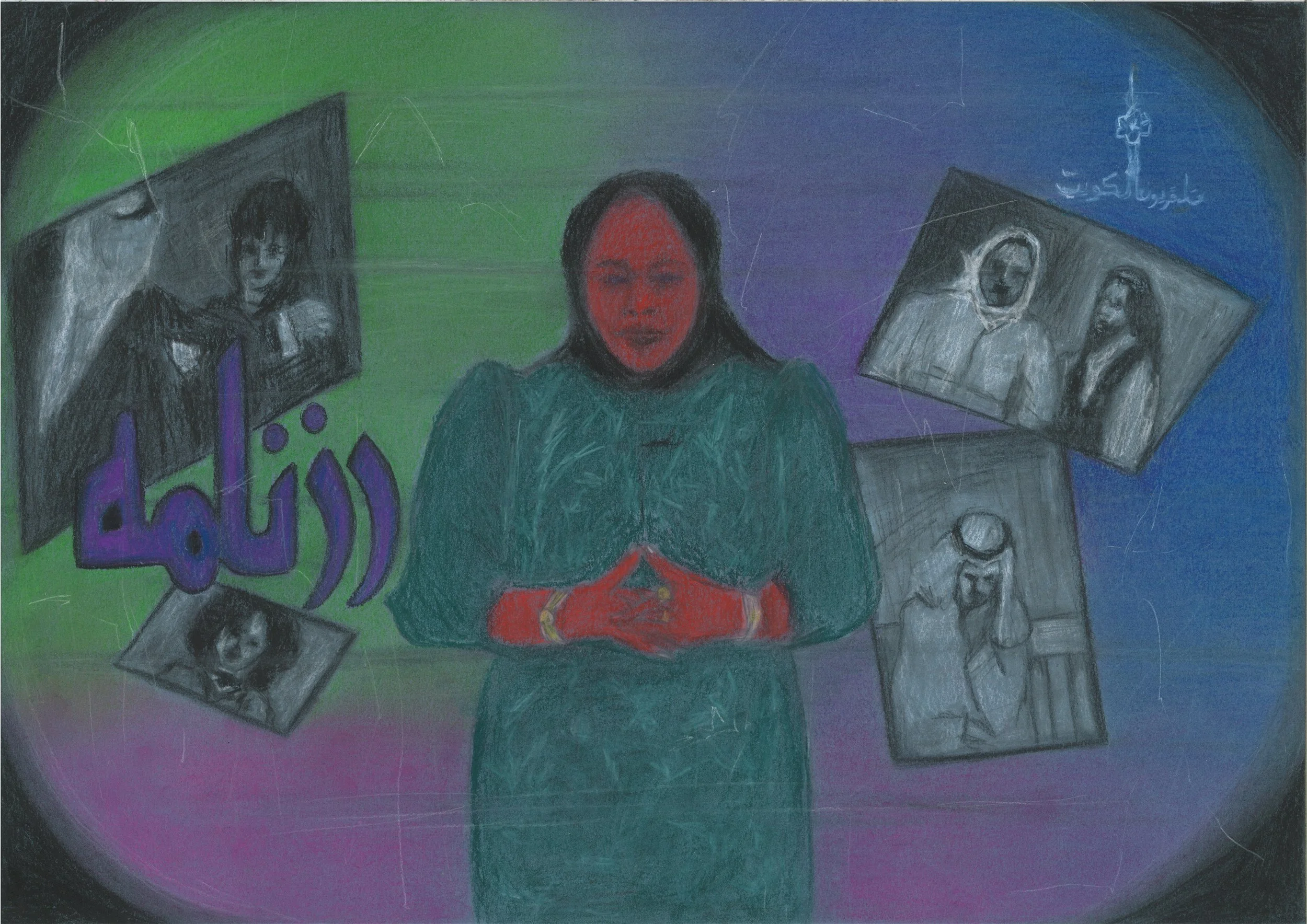
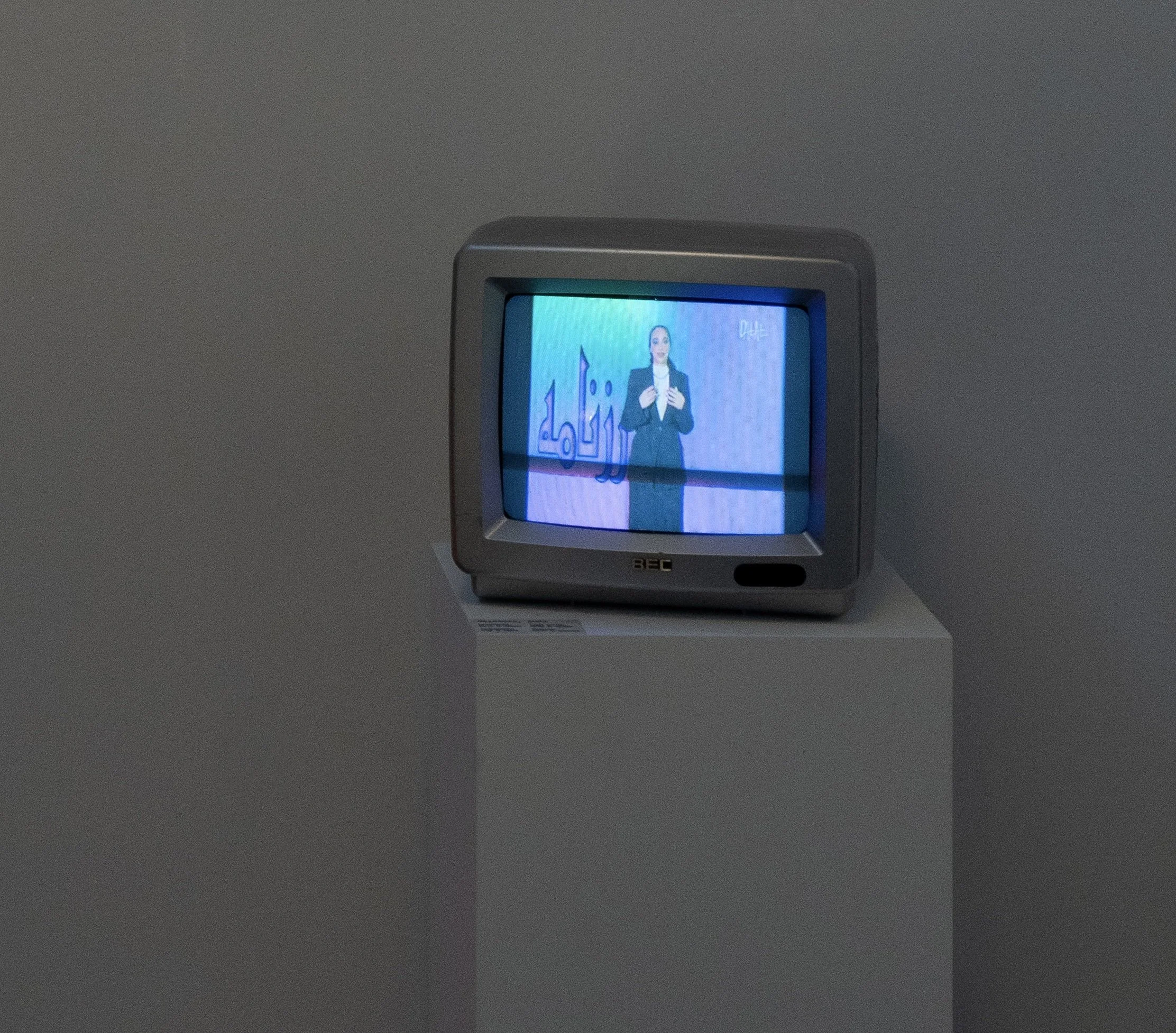
Dalal is an artist. She’s always known it to be her true path. Though her trajectory didn’t always feel as though it was advancing towards painting, her desire to blend self with canvas has always been at the forefront of her drive. When studying business she would find self and security in her drawings and sketches, coming back to her own seminal moments and experiences. Unconsciously, it was this cataloguing of feelings that helped give her confidence to be who she was always destined to be. “I did everything people were expecting me to do, and so I thought, it’s time I do what I expect myself to do.”
Playing a role was something Dalal had always been familiar with. As children, she and her siblings would reenact Disney films. “I was always given the main part. Cinderella or Snow White, anything! I felt comfortable. It was just right for me.” With natural progression, Dalal took her Disney Film superstardom and returned to what it was that spurred her delight under that tent, with tea, biscuits and TV. She decided to become Siham Mubarak. This time, it wasn’t Kuwait’s memory archive she would showcase, it was her own. “I wanted to highlight the functionality of the television, [...] not just a medium of information but also a powerful tool that continues to curate our memory. […] I liked this idea of Mubarak selecting what she thought we should remember from TV.” As Al Obaidi herself had methodically been assembling her own memoirs, anything that had shaped her, banal or inspiring, habitual or unprecedented, the move towards digital seemed natural. The colour palette for her paintings, for example, was based off of the pleasure she felt in documenting and memorialising her friends with a red-filtered polaroid camera. As seamlessly as she narrates, Dalal paints and oscillates between these lived experiences and the dream-like quality of remembering. “The ideas always exist before I paint them.” Whilst planning her first solo show at The Sultan Gallery in 2023, Al Obaidi felt an inherent, urgent need to communicate and explain the nature of her paintings. It felt necessary for people to understand the place of her own memories in wider Kuwaiti culture. “Me being in that video felt just right. It tied everything together. It was about the things that I went through, a bigger story line unravelling.” With the help of her dearest friends, she staged a living room for the viewers to understand her itinerary through something familiar and universal: television. This video installation takes its title from the Arabic word reznamah (رزنامة), meaning calendar or almanac. While an earlier Kuwaiti television program carried the same name, this work is not affiliated with Kuwait TV.
& Calendar (2023)
stills: Dalal Al Obaidi Reznamah (2:20 , 2023)
below: Dalal Al Obaidi Popstars and Espressos
There is a smooth and gentle feel to the trajectory of her memory skills. The discovery of برنامج رزنامة/Barnamaj Reznamah as an emblematic effort in preserving Kuwaiti television culture led her to the crux of a research for her MAFA (CSM.) She is currently in the expanding midst of writing a paper about Kuwait TV, exploring local archives and trawling the Internet for glimpses into old TVs shows. “There seems to always be a TV program where they go back to the past. Reznamah is not actually unique in the way it’s discussing archival material, many other shows treat a similar thing.” Does Kuwaiti culture prefer the past to the present? “When Kuwait experienced the modern golden age, there was an urgency to collect and archive, I argue that a lot of post-modern artists in Kuwait agree on a promised future for the country, right after the discovery of oil. It was a golden era when Kuwait was prosperous. Amid growing Western influence Kuwait’s sense of visual cultural identity was being reshaped. Kuwaiti presenters in a mix of Western-style clothing and traditional attire were trying to collect and preserve their country.” Dalal examines her home’s sense of urgency, feeding her very own need to preserve her individual history.
Dalal Al Obaidi’s paintings are symbols of the marvellous in what it means to practice and respect personal remembrance. These bright dreamscapes that keep reminders alive are a beautified trip down the artist’s private reminiscence. Escorting and protecting us against the perils of forgetting is the artist herself, on and off screen: “You know the Nintendo quit screen message, ‘EVERYTHING NOT SAVED WILL BE LOST?’ Well, I don’t want to lose anything!”
Dalal Al Obaidi Heartbreak Television (2024)
All images courtesy of Dalal Al Oblaidi / @dalalalobaidi_words: Alexia Marmara